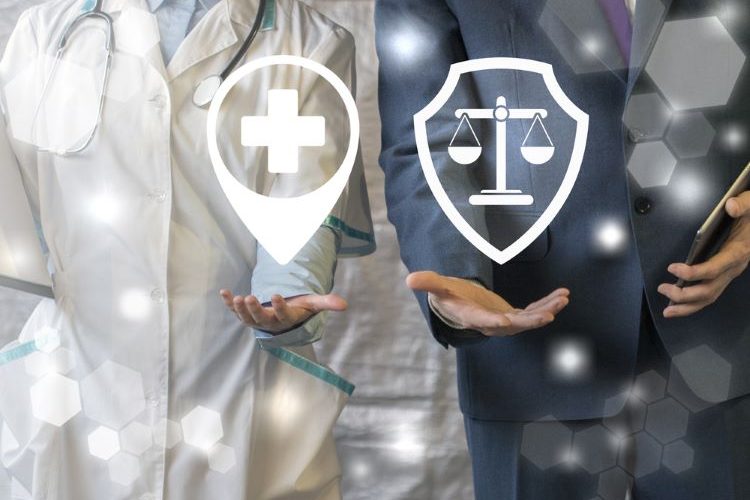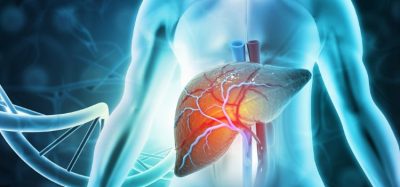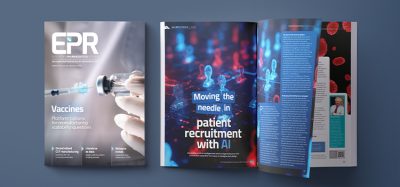Biosimilar medicines: the intersection of access, affordability, and innovation
Posted: 31 January 2025 | Julie Maréchal-Jamil (Medicines for Europe) | No comments yet
In this article, Julie Maréchal-Jamil, Director, Biosimilar Policy & Science, Medicines for Europe, explores the strategies needed at European and national levels to secure the benefits of biosimilar medicines in an evolving landscape to deliver a pipeline for these drugs by 2030.


Since 2006, the advent of biosimilar competition in Europe has played an essential and growing role in catalysing patient access to key biological medicines (around seven billion safe and effective treatment days) while achieving significant relief for healthcare budgets amounting to €56 billion in cumulative biological treatment cost reductions across Europe (approx. €6 billion in 2024 alone). Over 100 biosimilar medicines are approved for nearly 30 reference medicines, testimony to the rigour of the scientific standards leading to the European authorisation process.
More importantly, patient outcomes have also been transformative, with more patients getting faster access to biological therapy. Medical societies and payers evolved treatment pathways, notably by removing access limitations (ie, cost-containment measures). These reconsiderations lead the way to liberating untapped potential from biological standards of care.1
With pharmaceutical innovation increasingly focusing on a wider range of biotechnology-derived medicines, a surge in biological medicines losing market exclusivity is expected between now and the end of the decade, creating an opportunity eight times greater than that of the 2012-14 period, (peaking at €30 billion between 2030-2032).2
The upcoming biosimilar wave and evolving challenges
a surge in biological medicines losing market exclusivity is expected between now and the end of the decade, creating an opportunity eight times greater than that of the 2012-14 period”
Even compared to only 10 years ago, the European pharmaceutical landscape has drastically evolved. Biological medicines represent 41 percent of pharmaceutical spending, growing at three times the rate of chemical medicines. This makes biosimilar medicines highly relevant. A significant number of the possible biosimilar candidates are not ‘blockbuster’ medicines. Instead they treat a minority population of patients, either specific indications or by targeting a subset of patients.
There has also been a multiplication of the nature of the biotechnology platforms involved. By the end of the decade, two cell and gene therapies will be subject to follow-on competition for the first time, beginning a whole new chapter in the biosimilar history.
This represents a unique opportunity for Europe to continue leading the way on advancing the biosimilar medicines concept3 both in terms of the health and outcomes opportunities it could bring, as well as in the field of regulatory science, R&D, biotechnological and biomanufacturing progress.
Gaps in the biosimilar pipeline had been recorded already in 2022, pointing to the need to better understand the drivers of biosimilar competition (or its absence) for Europe to sustain future biosimilar benefits.
By the end of [2030], two cell and gene therapies will be subject to follow-on competition for the first time, beginning a whole new chapter in the biosimilar history”
The 2024 IQVIA report4 highlights a dynamic market shaped by competition, but also hindered by structural gaps, including absolute barriers to entry. These findings, presented at the European Commission’s annual biosimilar stakeholder event,5 provide an important reflection point for the future of European and national biosimilar medicines strategies.
To deliver a biosimilar pipeline by 2030, new questions need to be addressed across the biosimilar life cycle: R&D and biomanufacturing investment in new technological platforms, regulatory requirements for biosimilar development (eg, cell and gene, orphan medicines), intellectual property, market competition dynamics, access policies, etc.
The path ahead – should we change tack?
Back in 2015, in the first IQVIA report6 and prompted by Commissioner Tajani’s initiative,7 efforts were made by stakeholders to design a unifying methodology to best define and represent the evolution of access to biosimilar medicines and biosimilar competition dynamics.
… it is important to keep an eye on the biosimilar pipeline activity, assess the competition dynamics and overall market attractiveness, and approach access policies more dynamically”
At the time, there were a limited number of biosimilar medicines in a few therapeutic indications. The methodology rested on two main indicators tracking market performance: the uptake of biosimilars in the industry and whether the cost of treatment is decreasing (price reductions and system savings).
Over time, patient volumes (patient treatment days) and levels of competition, including market share, were also considered. Today, when assessing European Member States’ actual metrics and benchmarks, most are still only focusing on uptake and price evolution.
The unprecedented wave of biologics’ imminent loss of exclusivity both resembles and drastically differs from biosimilar history to date.
It therefore appears not only appropriate but essential, that Europe and individual States move towards a more elaborate and nuanced set of indicators that enables a refined understanding and allows better informed policy-making decisions on the needed evolution of the biosimilar strategies in place.
The AUGMENT Biosimilars project and the AUGMENT Consortium8 captured this idea very well by prioritising the development of a country dashboard for biosimilar medicines policies and their concrete impact.
Besides traditional indicators, it is important to include and monitor new indicators to draw horizon scanning and allow adjustments to budget and savings forecasts. Among these, it is important to keep an eye on the biosimilar pipeline activity, assess the competition dynamics and overall market attractiveness, and approach access policies more dynamically, ie, revise reimbursement policies and treatment paradigm.
Realising the opportunity in the biosimilar landscape
Europe, and the world, are faced with an incredible and unprecedented opportunity to take advantage of biosimilar medicines to broaden access to key biological medicines, allow healthcare systems to invest effectively, while sustaining a thriving biosimilar industrial sector, stimulating technological innovation and progress. The commitment of biosimilar industrial actors to dynamic competition in support of affordability, accessibility, availability, innovation and competitiveness is undisputable.
Coordinated action at both EU and national levels, as well as a renewed focus on policy indicators which effectively reflect the competition dynamics, patient access, and treatment cost reduction are needed. This will provide more regulatory certainty, enhance market predictability and healthy competition to contribute to increasing overall predictability, and act as an incentive to drive the expansion of EU and global investment in biosimilar development and patient benefits.
The key question today for governments and stakeholders to unlock access to the next wave of life-changing biological therapies must therefore revolve around the proactive strategic inclusion of biosimilar medicines policies as part of healthcare and industrial policies, with a clear goal to de-risk and enhance predictability in support of investment in biosimilar medicines development across a broad range of therapies.
About the author


Marechal-Jamil has led European and International advocacy efforts across a wide range of topics: market access and health policies, and regulatory and scientific frameworks. She holds a MSc in Pharmacology.
References
1. Key Figures on Biosimilar medicines (2024). [Internet] Biosimilar Medicines Group, Medicines for Europe. Available from: https://www.medicinesforeurope.com/wp-content/uploads/2024/05/infographic-biosimilars.pdf
2. Assessing the Biosimilar Void. [Internet] IQVIA. 2023. Available from: https://www.iqvia.com/insights/the-iqvia-institute/reports-and-publications/reports/assessing-the-biosimilar-void
3. Biosimilars Medicines Overview. A Biosimilar Medicine Is A Biological Medicine; It Is An Interchangeable Version Of An Already Approved Originator Biologic Medicine (Reference Medicine); The Reference Medicine And Biosimilar Medicine(S) Can Be Used Interchangeably Without A Patient Experiencing Any Changes In The Clinical Effect. [Internet] EMA. Available from: https://www.ema.europa.eu/en/human-regulatory-overview/biosimilar-medicines-overview#:~:text=A percent20biosimilar percent20is percent20a percent20biological,apply percent20to percent20all percent20biological percent20medicines.
4. 2024 IQVIA Report: The Impact of Biosimilar Competition in Europe. [Internet] IQVIA. 2025. Available from: https://www.iqvia.com/library/white-papers/the-impact-of-biosimilar-competition-in-europe-2024
5. (DG SANTE) Biosimilar Medicines – Multistakeholder Event (2024). [Internet] European Commission. 2024. Available from: https://health.ec.europa.eu/events/biosimilar-medicines-multistakeholder-event-2024-12-05_en
6. (DG GROW) Multi-Stakeholder Workshop – Access to and Uptake of Biosimilar Medicinal Products. [Internet] European Commission. 2015. Available from: https://ec.europa.eu/newsroom/growth/items/460858/en
7. Better Access to Medicines for Patients in Europe. [Internet] European Commission. 2013. Available from: https://ec.europa.eu/docsroom/documents/3982/attachments/1/translations/en/renditions/native
8. Capacity Building to Support the Uptake of Biosimilars in a Multistakeholder Approach. [Internet] AUGMENT Consortium. Available from: https://biosimilars.goeg.at/
Related topics
Biologics, Biopharmaceuticals, Biosimilars, Clinical Development, Clinical Trials, Drug Markets, Drug Supply Chain, Industry Insight, Orphan Drugs, Regulation & Legislation, Research & Development (R&D), Therapeutics









